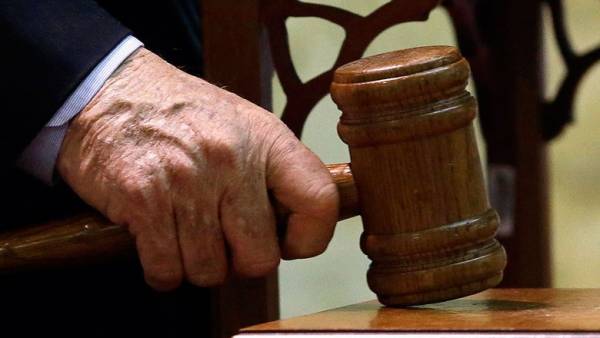
In the book Constitutional Justice: Procedure and Meaning, Valery Zorkin returns to the doctrine of national identity and discusses the role of constitutional control, which is designed to “humble the destructive effect of political prominences and protect society.” He recalls that the socio-cultural situation in Russia differs significantly from the situation in the old democracies of Europe — and these differences must be taken into account.
At the same time, the Constitutional Court, as Mr. Zorkin notes, demonstrated a willingness to overcome, if necessary, stereotypes of mass consciousness — as was the case, for example, with the abolition of the death penalty.
The Chairman of the Court recalls that in Russia has had an indefinite moratorium on the use of the death penalty since 1996, which was introduced by virtue of the commitments made when the country joined the The Council of Europe.
This moratorium was confirmed in 1999 and 2009 by the decisions of the Constitutional Court, but formally the court did not abolish the death penalty (only a legislator can do this), but only declared an almost indefinite moratorium on its appointment and application, emphasizes Mr. Zorkin. But until now, the topic of the death penalty remains one of the most debated, and the question of its return has been repeatedly raised in parliament, Valery Zorkin points out.
“The fact that the Constitutional Court adopted a decision making it impossible to apply the death penalty in Russia at this historical stage of its development does not exclude the possibility of a return to this measure of punishment in the future,” the chairman of the court writes.
As long as there are premeditated murders, the issue of the use of the death penalty cannot be completely closed, he is sure: “Here a lot depends on the general legal situation in the country, on how far we can advance in creating that strong, self-confident rule of law that will allow us to keep the concession we have made, a departure from the requirements of the legal principle of equality. I very much hope that the departure made by our country from the law towards those moral and religious views that stand on the positions of principled rejection of the death penalty will be successful for Russia.”
According to Mr. Zorkin, the role of constitutional courts in reconciling competing interests in the legal space is especially important in countries with an undeveloped public sense of justice and with unsettled democratic traditions.
“Spontaneous democracy with its inherent unrestrained mass protests naturally descends into ochlocracy and is not capable of achieving long-term and positive results at the institutional level—” the head of the Constitutional Court is sure.— This also applies to unstable political regimes prone to various kinds of “color” or “fruit” revolutions, when long-term development projects of the state and society are sacrificed for short-term benefits. In circumstances of unstable democracy, the constitutional control body is able to designate a kind of milestones that orient society to the legal vector and create conditions for the restoration of normal constitutional and legal life.”
But ignoring the negative public reaction to court decisions can be dangerous, even if it does not lead to open public outrage, warns Valery Zorkin.
Such a position, in his opinion, is more than short-sighted: “In the future, this reaction generates, so to speak, tiny crystals of negativism. They may eventually dissolve. Or be preserved in the social fabric. But if there are sufficiently influential and well-organized forces seeking to use this negativism for their own purposes, then tiny crystals of negativism can turn into powerful growth points.”
What led to Russia’s attitude to the tragedy in February 1917 also began with “little things”, the chairman of the Constitutional Court reminds: soldiers, entering the church, stopped being baptized and did not extinguish cigars, the authority of officers fell, the very negativism accumulated, which at first is fraught only with internal rejection. “And then this internal rejection turned into the collapse of all institutions, all systems of social life,” the Chairman of the Constitutional Court concludes.
This text leaves the impression that the very formulation of the question by Valery Zorkin is connected precisely with his fears for the stability of the 2009 CC definition in the current political and legal realities, says Olga Podoplelova, a constitutional lawyer and head of the legal department of the Rus Sitting Foundation (listed in the register of foreign agents). However, the abolition of the death penalty is based not on the definition of the Constitutional Court, but on the obligations that Russia assumed when joining the The Council of Europe, the expert insists.
On the one hand, Moscow has not ratified Protocol No. 6 and has not signed Protocol No. 13 to the European Convention (both documents relate to the abolition of the death penalty). On the other hand, today the ECHR unequivocally confirms that, in view of the practice that has developed in the member States of the Council of Europe, Article No. 2 of the Convention actually prohibits the death penalty, states Ms. Podoplelova. Therefore, in her opinion, even a hypothetical exit of Russia from Protocol No. 6 from the point of view of international law cannot justify the restoration of the death penalty in the country.
Anastasia Kornya, Alexander Chernykh